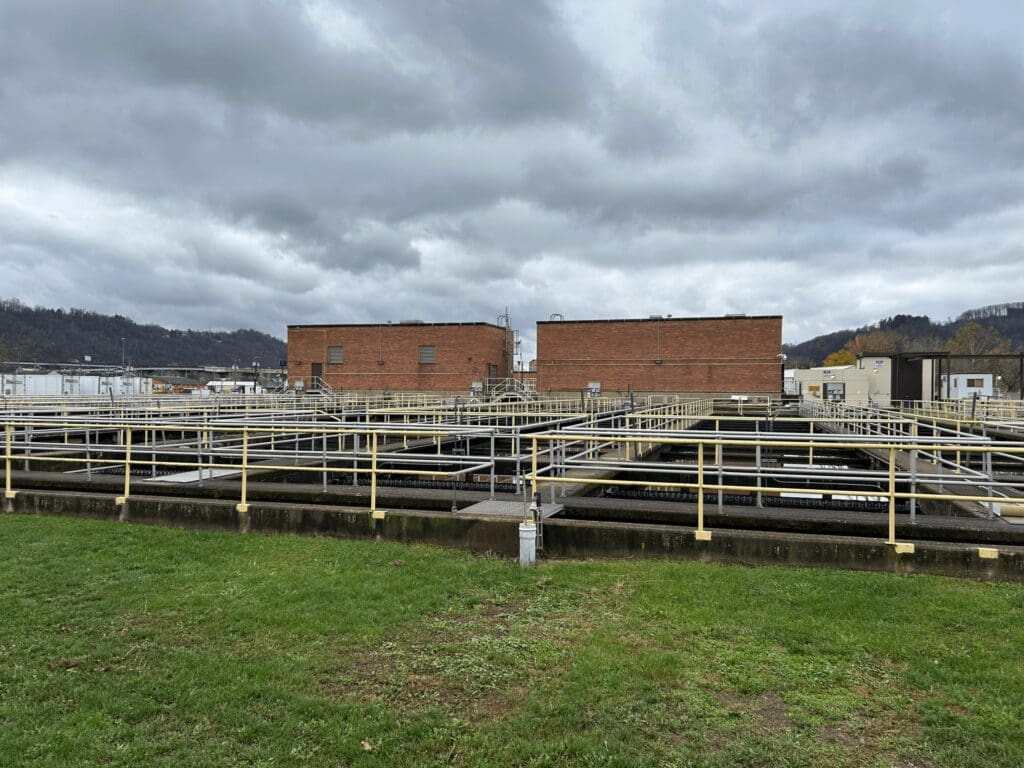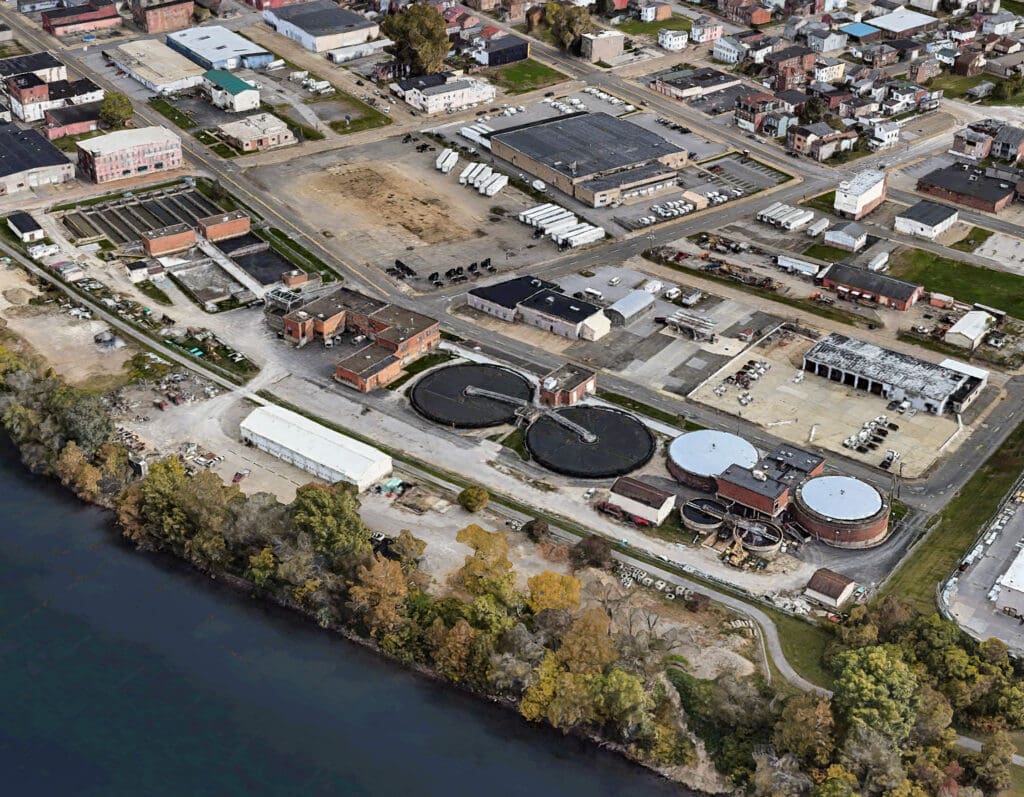There’s not a polite way to pose the question. The question is the question.
Why does it smell like poop far more often – and far worse – in the Center Wheeling area these days?
Motorists who drive, employees who work, and residents who live in proximity to the City of Wheeling’s Water Pollution Center at 2516 Main Street have been subjected to increased aroma levels because the sewage filtration system was damaged months ago and has been operating with temporary components ever since. The city’s water department operates separate from the City because as state code mandates, utilities most operate that way.
Plus, the summer of 2024 was warmer and drier than normal.
“It’s an interesting problem we have right now at our water treatment plant because the increase of smell is connected to damage that occurred during the April floods. That damage has had an impact on our ability to control that smell,” Herron explained. “Right now, we’re having an issue with the digesters, and that’s one of the reasons why there’s been an increase in the smell, too.
“The system we have has a (bacterium) that are called ‘bugs’ because it’s a microorganism that helps break down the sewage. But they have to have oxygen,” he said. “If they lose oxygen, the ‘bugs’ die and they almost were without oxygen because of the damage, and that allowed the digesters to fill above normal. We do have a cleaning project out to bid that will fix the issues.”

The National Weather Service tracked a few “heat waves” this past summer, and daytime temperatures were frequently above 90 degrees in July, August and September. Burn bans were put into place in several communities in the Upper Ohio Valley, and brush fires have taken place this year in Belmont, Marshall, and Ohio counties.
Those hot, dry weather conditions, however, made the foul stench even worse.
“The whole process with the ‘bugs and the digestors minimizes the smell, but when we have high heat, there’s nothing anyone can do without those domes that cover the digestors. On those hot days, the smell is the smell,” Herron said. “Right now, we have temporary centrifuges that are pumping the oxygen into the system for the ‘bugs’ and that’s make the issue much better in that area of the city.
“With the temporary equipment, we’re in compliance, but there are the tougher days, and we’ve had a lot of very hot days since April when the floods took place,” he said. “So, the damage is getting fixed, and the digestor will be cleaned soon so the issues will be taken care of in the near future.”
Wait. Domes? What domes?
“The ultimate, long-term solution for our sewage treatment plant and the smell from it is to cap the digestors, and you do that by placing a dome structure over it. That’s very expensive, but that would entirely eliminate it,” Herron reported. “Once you do it, it’s done, but that’s not a conversation that has taken place.”

Who Knew About These Poop Chewing Bacillus?
The “bugs” are microorganisms that play an imperative role at Wheeling treatment plant because they break down organic matter and remove pollutants from the water.
How many “bugs” are there?
“More than a million,” the city manager replied.
How long do the bugs live?
“They reproduce.”
Reproduce?
“Reproduce.”
The “bugs” also are the measuring stick for how well a water treatment plant is operating, and more than a decade ago the microorganisms detected a harmful material released by Liquid Asset Disposal that was located in the city’s Industrial Park. The material killed an alarming number of the system’s “bugs” because it restricted oxygen levels.
That’s a “red flag” violation.
“The ‘bugs’ are very sensitive as far as what they come in contact with, and normal waste is never an issue. It’s when you get into the industrial waste that can have a negative impact on the oxygen flow when you’re dealing with one of your biggest problems,” Herron said. “That’s when the ‘bugs’ die, so it’s something we take very, very seriously.
“We have kept up with the technology that’s needed to stay up to date at the treatment plant, and that’s why we seldom have had any problems,” he added. “And we’re getting the flood damage fixed as fast as we can so that the smell can be significantly reduced as soon as possible.”



So was it the flood that caused this or was it the company that killed the bugs? Are you saying you are going to raise rates to pay for a dome? Or is that the state not city problem? Also years ago when you raised rates for a number of years for updating, did that increase ever come off of the peoples bill? I have questions.
Comments are closed.